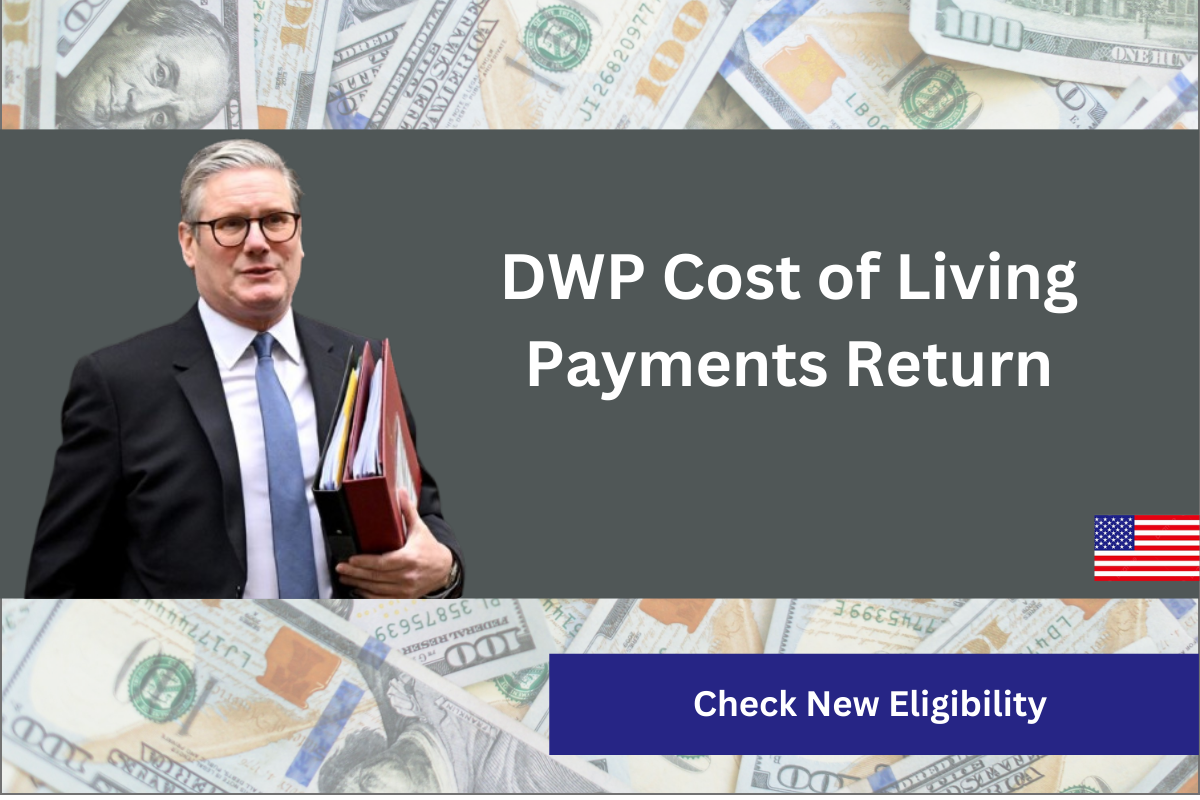The UK government’s Department for Work and Pensions (DWP) has recently made headlines with the return of cost of living payments, stirring up quite a conversation. With rising bills and financial pressures affecting many households, these payments are a lifeline for those in need. Yet, there’s a twist in the eligibility criteria that’s caught many people off guard. So, what do you really need to know? Let’s break it down.
Understanding DWP Cost of Living Payments
Cost of living payments from the DWP are essentially cash grants designed to support individuals who are struggling to make ends meet. They aim to alleviate financial stress caused by inflation, rising energy costs, and other economic pressures. So, if you find yourself worried about how to cover your next bill, these payments could be a blessing in disguise.
Who is Eligible for the Payments?
Previously, the eligibility criteria were fairly straightforward, but they have recently experienced an important update. Typically, those receiving benefits like Universal Credit, Income Support, or pension credit would qualify. But now, there’s an additional twist to keep an eye on.
New Eligibility Criteria: What’s Changed?
Previously solely focused on benefits, the criteria have expanded. Now, individuals who might not have qualified before—like those on lower earnings or those with specific health conditions—may find themselves eligible. This change is vital for anyone who’s recently fallen on tough times but doesn’t claim traditional benefits. So, if you’re wondering whether you qualify, it’s a good time to double-check your status!
How Much Can You Expect to Receive?
The payments are not extraordinarily large, but they can make a significant difference in a month’s budget. Typically, most eligible individuals can expect to receive between £400 and £1,200, depending on their circumstances. Just think about it; having that extra cash could mean the difference between skipping a meal or keeping the lights on!
When Will the Payments be Made?
Timing is everything, right? The DWP has laid out specific dates when these payments will roll out, but it’s important to keep an eye on the announcements. Generally, payments are made in installments throughout the year. So, if you’re in the queue, patience is key—just like waiting for that summer barbecue on a rainy day!
How to Apply for the Cost of Living Payments
Applying for the cost of living payments can feel daunting, but it’s actually quite straightforward. If you’re already on a qualifying benefit, you don’t need to apply for the payments separately; you’ll receive them automatically. However, if your situation has changed or you think you might qualify under the new criteria, it’s worth reaching out to the DWP for guidance.
Keep Documentation Handy
Whether it’s proof of income, bank statements, or other helpful documentation, having everything organized can streamline the process. It’s like preparing for a road trip; the better prepared you are, the smoother the ride will be!
Final Thoughts
The return of DWP cost of living payments is an essential lifeline for many. While the new eligibility criteria open doors for some, it’s crucial to stay informed and check if you qualify. Don’t hesitate to reach out for assistance or clarification; remember, even the best navigators need a map sometimes!
Frequently Asked Questions
1. Who qualifies for the DWP cost of living payments?
Eligibility typically includes those on benefits like Universal Credit but now also extends to specific lower-income individuals and those with certain health conditions.
2. How much can I expect from the cost of living payment?
Most eligible individuals can expect payments ranging from £400 to £1,200, depending on individual circumstances.
3. When will I receive the payments?
The payments will be made in installments throughout the year. Keep an eye on DWP announcements for specific dates.
4. Do I need to apply for the payments separately?
If you’re already receiving qualifying benefits, you don’t need to apply separately; payments will be made automatically.
5. What documents should I prepare for the application process?
Having proof of income, bank statements, and other relevant documentation ready can help streamline your application.

